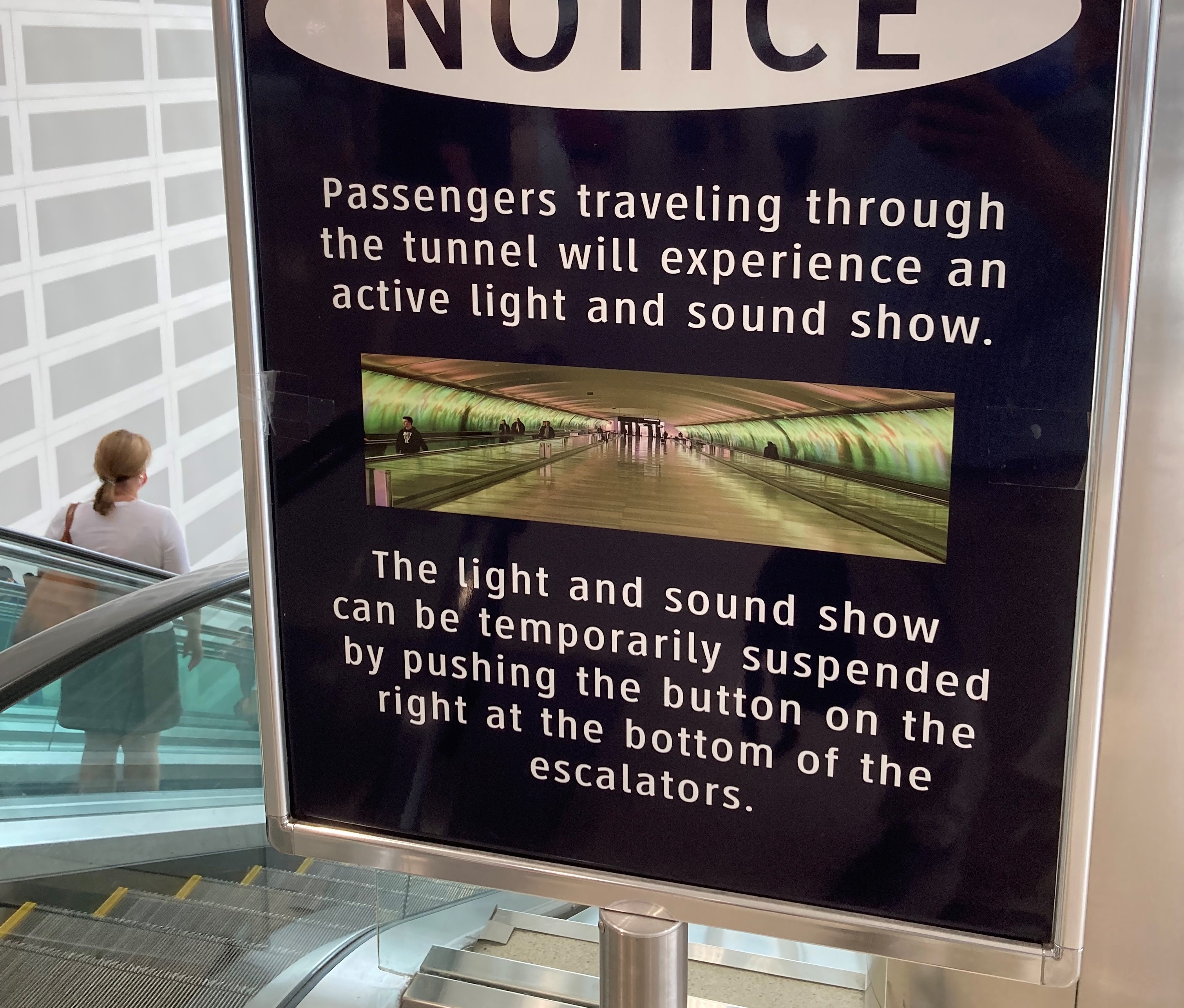Detroit’s Disability Heroes: Sensory-Friendly Experiences
The Motor City is making significant strides toward inclusion.

Detroit’s commitment to accessibility has touch points all over the metro area. Public spaces are designed with the intention to accommodate people with disabilities — from the paved Detroit Riverwalk to descriptive tours at the Detroit Institute of Arts. However, as disability advocates know, creating accessible spaces is a multifaceted topic. In our spotlight on the disability heroes of Detroit, we’re celebrating those who also accommodate individuals with special sensory needs.
From the moment you touch down at Detroit Metro Airport, travelers with non-visible disabilities can also utilize the Hidden Disabilities Sunflower program and discreetly alert staff to their needs by wearing a sunflower lanyard or wristband. As you move through the underground Light Tunnel, an artistic display of LED lights and music, you may notice a button at the start of the tunnel, strategically placed to shut down the program for five minutes. This is designed for those who may find the experience overstimulating or uncomfortable.

Meanwhile, within metro Detroit, several iconic venues have partnered with KultureCity, an organization dedicated to creating sensory-inclusive spaces for all. KultureCity-certified venues include the Detroit Zoo, Comerica Park, Pine Knob Music Theatre, Detroit Opera House and Little Caesars Arena (which won KultureCity’s Sensory Inclusive Venue of the Year in 2021).
“Our venues are accessible to guests with sensory processing issues who might not be able to attend events otherwise,” said Amanda Vought, Vice President of Guest Strategy for Ilitch Sports + Entertainment. “The annual training KultureCity provides gives our event staff the confidence and tools to assist guests experiencing sensory overload and ensures guests know our venues are an inclusive place to visit.”
More than just a piece of paper, KultureCity certification requires rigorous training for staff to work with people with sensory needs. These venues also provide free sensory bags for guests to check out during their visit. The bags include noise-canceling headphones, stim toys, verbal cue cards and weighted lap pads. KultureCity also has an app that allows visitors to find venues with Sensory Inclusive™ Certification.

A guest shared their thanks for Little Caesars Arena and the accommodations made for their son with a sensory disorder.
“When you have a child with a sensory disorder it is often misunderstood, and people think it’s an excuse. It often presents challenges for little humans, just like my son, who cannot handle too much stimulation,” they explained. “Your facility made a master plan [for] my child — one who would have struggled at such a venue — to [create] an experience of smiles, laughter and memories.”
Another past visitor weighed in: “The guest services representatives were extremely kind to my daughter and me. They helped us with our sensory inclusivity items and made sure we liked what we received and that our headphones fit properly. I loved our experience.”
Creating sensory-inclusive spaces opens up endless opportunities for those whose unique needs haven’t always been well-accommodated in the past. Accessible and inclusive spaces provide everyone with the opportunity to enjoy what Detroit has to offer. Click here for more information on accessible spaces in Detroit and throughout Michigan.
About the Author: Charlotte Bachelor is a Detroit-based writer and disability advocate. She is the founder of the Detroit Accessibility Project and has contributed to both Visit Detroit and Pure Michigan.